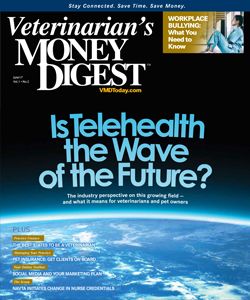Take It from Dale Carnegie
Studies continue to confirm what Dale Carnegie promoted decades ago: Happy workers are more productive.

Studies continue to confirm what Dale Carnegie (1888—1955) promoted decades ago: Happy workers are more productive. Carnegie was a sought-after lecturer, a counselor to world leaders, and an author of best sellers such as “How to Win Friends and Influence People.” And his principles are still readily applicable to achieving personal and professional success.
Workers’ happiness can be measured by their level of engagement. Engaged workers perform better and are more motivated, putting in extra effort when their organization needs it most.
These workers stay with their organization, reducing turnover and serve as brand ambassadors. Worker engagement is the foundation for productivity and, in turn, profitability.
“Happiness and Productivity: Understanding the Happy-Productive Worker” by Dr. Daniel Sgroi summarizes a 700-person study in which researchers randomly chose individuals and either showed them a 10-minute comedy clip (test group) or gave them snacks and drinks (control group). This was followed by a series of questions to ensure that the “happiness shocks,” as they are called in the report, truly made the subjects happy. Upon confirmation, the researchers gave the subjects tasks to measure their productivity.
Productivity increased by an average of 12 percent in the test group and was as much as 20% higher than that of the control group. The researchers also tracked the effect of “real-world shocks” (e.g., mourning, family matters) on workers. The results showed a causal link between unhappiness and decreased productivity. Sgroi concluded, “Having scientific support for generating happiness-productivity cycles within the workforce should...help managers to justify work-practices aimed at boosting happiness on productivity grounds.”
There are countless ways to boost worker engagement:
- Use clear communication.
- Keep meetings relevant to all attendees.
- Recognize employee success.
- Provide opportunities for growth.
Carnegie’s suggestions include the following:
- Give honest, sincere appreciation.
- Praise the slightest improvement.
- Count your blessings — not your troubles.
Veterinary professionals who are highly engaged at work can have far-reaching effects on their surrounding community via clients who have positive experiences and whose pets receive excellent care at their veterinary hospital. This issue of Veterinarian’s Money DigestTM delves into several topics that can affect employee engagement — for both good and bad.
On the negative side, leadership errors can undermine engagement in a number of ways, and bullying destroys productivity to the tune of $200 billion per year throughout America. On the positive side, an effective mentorship program can have long-lasting effects on both the technical abilities and cohesiveness of your team, and one veterinarian shares how her insistence that her team become Fear Free certified had unexpectedly great effects on employee engagement.
Don’t underestimate how much your compassion for your patients, clients and coworkers can influence success — and actually lead to better pet health.
Thank you for reading!
Mike Hennessy, Sr.
Chairman and CEO
